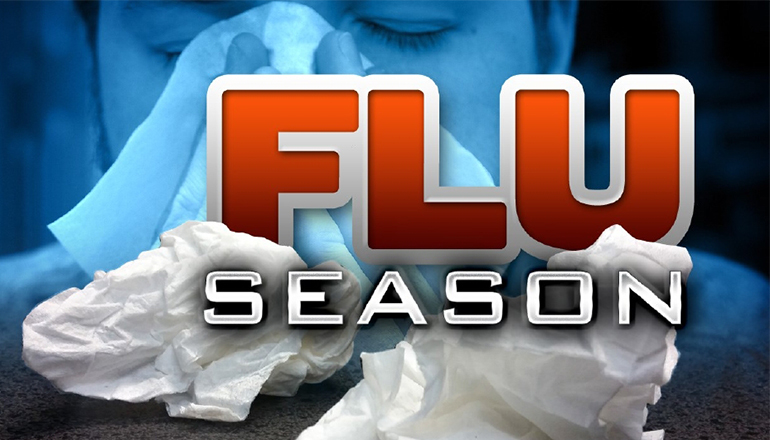With flu season now officially underway, the Missouri Department of Health and Senior Services is encouraging Missourians to get a flu shot and a COVID-19 vaccine or booster, if eligible.
The Centers for Disease Control and Prevention (CDC) has recommended that people 65 years and older get a high-dose flu vaccine this season. Individuals can receive flu and COVID-19 vaccines in the same visit but are encouraged to check with the provider first to ensure there is available inventory. Both the COVID-19 and flu vaccines are safe and effective and have been shown to reduce the risk of serious illness, hospitalization, and death.
“We encourage everyone to get a flu shot to protect themselves and their loved ones against flu – especially those who are considered high-risk for serious complications,” said Paula Nickelson, acting director of DHSS. “It is important that Missourians visit a flu clinic or their primary health care provider soon as it can take two weeks for the vaccine to begin working.”
On Oct. 14, DHSS began its statewide surveillance reporting for the 2022-2023 flu season. Weekly data reports are published each Friday and include the number of diagnosed influenza cases, influenza-like illness visits to the ER, and flu-related hospitalizations across Missouri. From October 2-8, 80 laboratory-confirmed flu cases were reported in Missouri (as compared to 28 cases during the same time period in 2021). Currently, the highest rate of infections is among the youngest children aged 0-4.
“It is important for parents to know that while their young children may have a lower risk of severe illness from COVID-19, young children are at higher risk of developing serious flu-related complications,” said Nickelson.
In addition to young children, high-risk individuals also include:
- Adults 65 years and older,
- Pregnant individuals,
- Children with underlying medical conditions,
- And individuals with these conditions: asthma, heart disease or stroke, diabetes, HIV/AIDS, and/or cancer.
The flu can be very serious. Each year, hundreds of thousands of individuals are hospitalized, while thousands die from flu-related illnesses. The most common symptoms of flu are fever, cough, and sore throat. Other symptoms include body aches, headaches, chills, runny nose, and fatigue. Not everyone will experience the same symptoms, and it is important to stay home if you are experiencing any of these symptoms. Seek medical assistance if you have trouble breathing, or if your symptoms worsen. Those who are in a high-risk group and experience flu-like symptoms should contact their primary healthcare provider.
“Now is also a great time to get up-to-date on your COVID-19 shots especially since they can be taken care of in the same visit,” said Nickelson.


